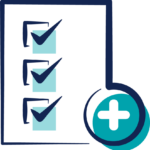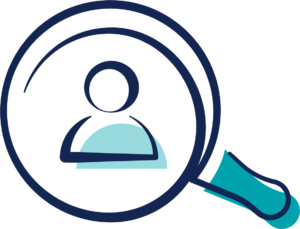After yesterday’s announcement of the roadmap to exit lockdown, the speculation is over. We now know that schools will be opening to all with effect from 08 March 2021. Indeed, school attendance will be mandatory for all pupils from 08 March. All primary school children will return on the day, but due to the testing requirements for secondary school pupils and to allow secondary schools to complete the testing regime, a phased return is allowed in the first week.
Some have asked whether they are able to complete testing prior to 08 March. Whilst the current written government guidance suggests that the earliest that you can do this is 08 March 2021, in a DfE webinar on 24 February, the DfE confirmed that schools can bring pupils back in for testing prior to this date. This is subject to the schools following all of the protocols and operational guidance required and the pupils returning specifically only for the testing.
You are being instructed that with the phased return of children you should prioritise vulnerable children and children of critical workers, and year groups 10 to 13. Pupils should not return to face-to-face education (normal school activities) until they have had their first negative test result – that should be within 30 minutes of taking the test.
However, testing is not compulsory and therefore a child that has elected not to be tested may return to face-to-face education in line with your phased return arrangements. For example, if you have 5 pupils in year 10 that elect to not be tested, they may return to face-to-face education at the same time as their year 10 colleagues who have been tested.
It is important from an insurance perspective that staff doing the testing (or supervising the self-testing) need to have completed the NHS certification for whichever role they are carrying out. The training is available as online modules with various roles requiring completion of certain modules.
If bringing in assistance from outside of school, then those individuals should be certified accordingly in the role that they will be carrying out. From a safeguarding perspective, if the temporary staff and volunteers are not being left alone with the children, but supervised at all times by DBS checked staff, then they themselves would not require DBS checks. They should be required to understand and follow your visitor code of practice.
The testing regime has changed since the original plans back in December. Secondary school staff will receive home test kits for self-testing twice a week. Secondary school pupils will be tested three times (previously two) on the school site and will then be expected to self-test at home after the initial tests, twice weekly. The initial three tests should be offered 3 to 5 days apart.
The requirements remain to obtain consent to tests and to record tests in a GDPR compliant manner.
Primary school staff will continue to test themselves twice a week at home. At the current time, primary school pupils will not be tested; but the government will review this in the event of any emerging evidence after the return to school.
Whilst pupils’ attendance at school is mandatory from 8th March, there will still be some pupils that will not be able to return because they:
- have symptoms or have had a positive test result
- live with someone who has symptoms or has tested positive and are a household contact
- are a close contact of someone who has coronavirus (COVID-19)
In such circumstances schools are required to provide remote learning to the absent pupils and retain records of such learning.
Clinically, extremely vulnerable staff are advised not to attend the workplace and currently this includes those who have had a vaccination, although this is being reviewed and may change.
Useful links
- Mass Testing press release from DfE and DHSC – https://www.gov.uk/government/news/mass-testing-for-secondary-pupils-as-all-schools-and-colleges-fully-reopenfrom8-march
- Schools coronavirus operational guidance – https://assets.publishing.service.gov.uk/government/uploads/system/uploads/attachment_data/file/963541/Schools_coronavirus_operational_guidance.pdf
- Training guide rapid testing for secondary schools and colleges – https://drive.google.com/file/d/1gJ07LeUgpzxYZCWzG8GdP-gMxFg1hq9O/view
About the author

If you would need any more guidance on the returning to school process please get in touch with our education expert, Mark Rose.
Mark Rose Cert CII
Account Executive
07841 430 237
[email protected]








